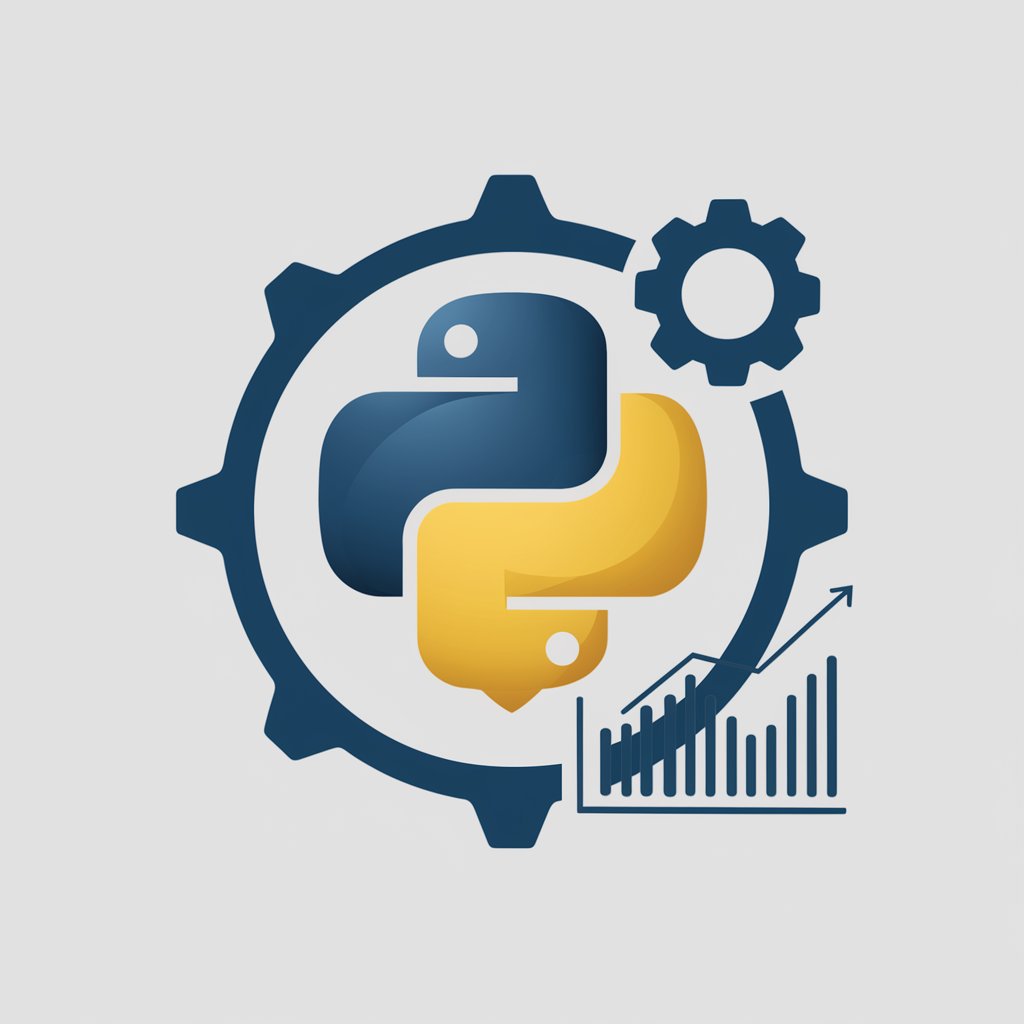
Python Optimization: Elevate Your Code - Python Code Enhancement

Welcome! Let's optimize your Python code.
AI-powered Python code optimization
Optimize this Python code for better performance:
Analyze this code snippet and suggest improvements for efficiency:
Profile this Python script to identify performance bottlenecks:
Provide a detailed explanation of memory management in Python:
Get Embed Code
Python Optimization: Elevate Your Code
Python Optimization: Elevate Your Code is designed to enhance the performance of Python code through advanced optimization techniques. This specialized focus involves analyzing Python code to identify inefficiencies, applying profiling tools to pinpoint bottlenecks, and implementing changes to improve execution speed, reduce memory usage, and ensure code scalability. The design purpose is to support developers in writing clean, efficient, and well-structured Python code that leverages Python's strengths while overcoming its performance limitations. An example scenario illustrating this aspect is optimizing a data processing application that handles large datasets. Initially, the application may take an excessively long time to process data due to inefficient data structures and algorithms. Through Python Optimization services, the application can be refactored using more efficient data structures like pandas DataFrames for tabular data manipulation, employing vectorized operations instead of loops, and parallel processing techniques to take advantage of multi-core processors, significantly reducing processing time and improving scalability. Powered by ChatGPT-4o。

Main Functions of Python Optimization: Elevate Your Code
Code Profiling and Bottleneck Identification
Example
Using cProfile to analyze a web scraping tool's performance and identifying a bottleneck in HTML parsing.
Scenario
In a scenario where a developer's web scraping tool is running slower than expected, Python Optimization would involve using cProfile to profile the code, identifying that the BeautifulSoup parsing is the bottleneck. By suggesting an alternative parser or optimizing the parsing logic, the tool's performance can be significantly improved.
Memory Optimization Techniques
Example
Applying memory management strategies such as using generators instead of lists to process large datasets.
Scenario
For a data analysis script that runs out of memory when processing large datasets, Python Optimization would recommend refactoring the code to use generator expressions or the itertools library for iterating over data without loading it all into memory, thus reducing the memory footprint.
Parallel Processing Implementation
Example
Utilizing multiprocessing or concurrent.futures to parallelize data processing tasks.
Scenario
In a machine learning model training task that takes hours to complete, Python Optimization would involve employing the multiprocessing or concurrent.futures modules to parallelize the training process across multiple cores, significantly reducing the training time.
Ideal Users of Python Optimization: Elevate Your Code Services
Software Developers
Developers working on high-performance applications, such as data analysis tools, web applications, or scientific computing software, stand to benefit significantly. These users often face performance bottlenecks that can be alleviated through specialized optimization techniques.
Data Scientists and Analysts
This group regularly deals with large datasets and complex computations. Python Optimization can help them streamline their data processing, analysis, and machine learning model training tasks, leading to quicker insights and more efficient resource use.
System Architects
Architects designing scalable and efficient systems can leverage Python Optimization to ensure their back-end processes, APIs, and data management strategies are optimized for speed and efficiency, contributing to the overall performance and reliability of the system.

Utilizing Python Optimization: Elevate Your Code
Initiate Your Journey
Start by exploring yeschat.ai for a complimentary experience without the need for sign-in or a ChatGPT Plus subscription.
Understand the Fundamentals
Gain a solid grasp of Python's core concepts, including data structures, algorithms, and memory management, to fully leverage optimization techniques.
Identify Performance Bottlenecks
Use profiling tools such as cProfile or Py-Spy to pinpoint inefficiencies within your code.
Implement Optimization Strategies
Apply techniques like algorithm refinement, using built-in functions, and parallel processing to enhance code performance.
Review and Refine
Regularly review your code for maintainability and efficiency, ensuring it remains clean, readable, and well-documented.
Try other advanced and practical GPTs
Green Bot
Empowering Sustainable Living with AI

PM Product Sense GPT
Empower your product sense with AI

Tech Product Manager
Empowering Product Decisions with AI

Biology aiMOOC
Empowering biology learning with AI

Prompt Enhancer
Elevating AI Interactions with Precision

Insta Insight Pro
Empower Your Instagram with AI Insights

Developer Productivity and Happiness Assistant
Elevating Developer Productivity with AI Insights

Laundry Buddy
Smart AI for Your Laundry Needs

AvIABot LeArnIng Center
Elevate Your Aviation IQ with AI

BookBot
Empowering readers with AI-driven literary insights.

JavaScript: Crafting Interactive Web Experiences
Enhance web interfaces with AI-driven JavaScript tools.

Revolutionize Web Engagement with JavaScript
Empower websites with AI-driven interactivity

Python Optimization: Elevate Your Code FAQs
What are some common tools for profiling Python code?
Common tools include cProfile for performance profiling, memory_profiler for memory usage monitoring, and Py-Spy for real-time performance analysis.
How can I reduce memory usage in Python?
To reduce memory usage, consider using generators for large data processing, employ arrays for numeric data, and leverage the `__slots__` magic method in classes to save memory.
What strategies can be used for optimizing Python code?
Optimization strategies include using built-in functions, algorithmic improvements, data structure optimization, and exploring concurrency with threading or multiprocessing to overcome the GIL limitations.
How does parallel processing improve Python code performance?
Parallel processing allows multiple operations to run simultaneously, utilizing more CPU cores, which is especially beneficial for CPU-bound tasks, thereby speeding up execution times.
Can Python optimization improve the scalability of my application?
Yes, by optimizing your Python code, you can reduce resource consumption and execution time, significantly improving the scalability and responsiveness of your application.